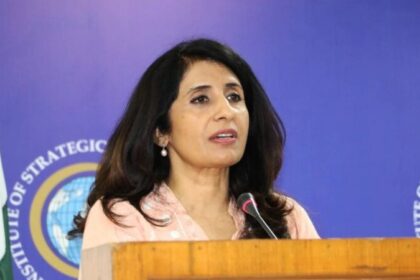RASC News Agency: The Afghanistan Freedom Front (AFF) has claimed responsibility for a targeted assault on the Taliban’s Intelligence Directorate 40 in Kabul, releasing both an official statement and video documentation of the operation. According to the AFF, the attack resulted in the death of one Taliban combatant and injuries to four others, signaling the continued operational capability of anti-Taliban forces within the heart of the capital. This incident marks the second operation launched by the AFF in less than 24 hours against Taliban positions. Earlier on Saturday morning, the group claimed responsibility for a separate strike against a Taliban outpost in Kunduz city, illustrating the strategic reach and persistence of insurgent efforts to counter Taliban control.
In its statement, the AFF clarified that the objective of the Kabul assault, carried out in the Shash-Darak district, was to target the Directorate’s ongoing abusive operations, which reportedly include the arbitrary detention and torture of former military personnel, women, and other Afghanistani civilians. The AFF emphasized that its operations are part of a broader campaign to apply pressure on the Taliban, undermine their authoritarian grip, and provide at least partial protection to citizens subjected to systematic repression. Local witnesses corroborated the explosion at Directorate 40, reporting widespread panic and temporary disruption throughout the surrounding neighborhood. Civilians described the attack as a rare, though risky, assertion of resistance against a regime that has consistently failed to provide security or justice for the population.
Regarding the Kunduz operation, the AFF stated that its nighttime raid in Security Zone 2 of the city resulted in the deaths of at least two Taliban fighters and injuries to two others. Residents reported hearing explosions and sporadic gunfire across several districts following the operation. The AFF stressed that these attacks are integral to a sustained strategy aimed at weakening Taliban authority and delivering tangible consequences to a regime that rules through coercion and fear rather than governance. Military analysts observe that these guerrilla-style operations reflect the continued resilience of anti-Taliban fronts throughout Afghanistan, demonstrating that opposition groups can conduct precise, effective strikes despite severe security restrictions. In stark contrast, Taliban spokespersons routinely downplay these attacks, asserting that anti-Taliban activity is limited to social media, a claim widely regarded by observers as propaganda designed to mask the regime’s inability to secure its own facilities and maintain order among its forces.
The recent spate of attacks underscores the persistent insecurity under Taliban rule, the regime’s prioritization of coercive power over civilian protection, and its systematic failure to uphold basic governance. Afghanistani civilians remain trapped under a government that relies on fear, arbitrary detention, and extrajudicial punishment, while showing neither capacity nor willingness to protect citizens or ensure stability. Experts assert that such operations send a clear signal: the Taliban’s claims of control are superficial, and their grip on urban centers remains vulnerable to organized resistance. Beyond the immediate tactical implications, these attacks illuminate the broader structural deficiencies of the Taliban administration, including its reliance on repression, the absence of an accountable judiciary, and the institutionalized denial of basic rights to women, former officials, and ethnic minorities.
As resistance efforts persist, analysts warn that the Taliban’s inability to provide security or legitimacy will continue to fuel unrest, reinforce anti-Taliban sentiments, and invite further international scrutiny of the regime’s abuses. In the absence of effective governance, Afghanistan remains a volatile landscape where authoritarian control is contested daily by both organized fronts and civilians seeking basic justice and safety.






